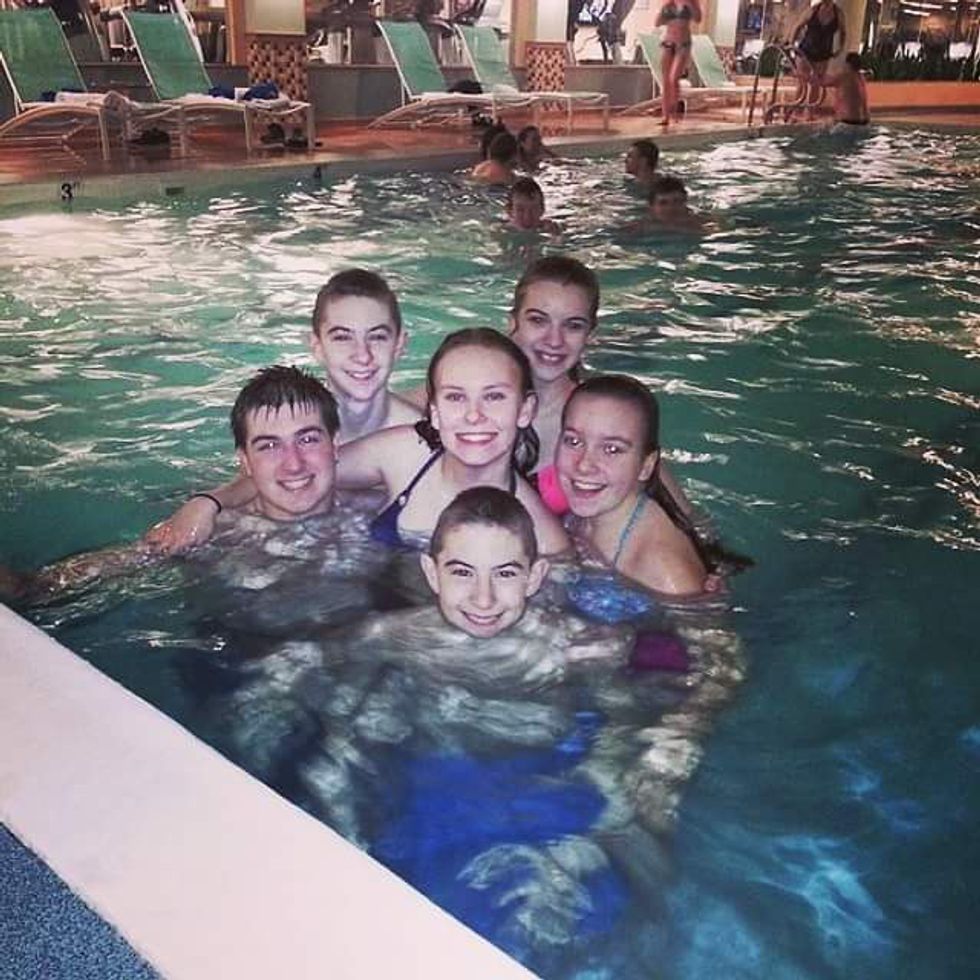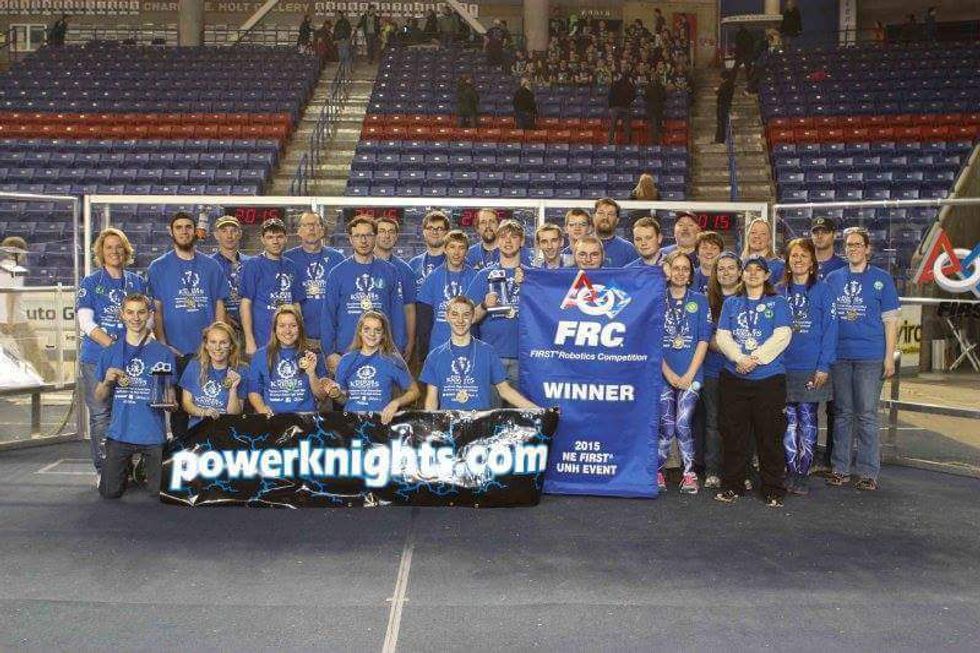When I started high school, the last thing I ever planned to do was join the FIRST robotics club.
By the time I graduated, I was a co-captain of the team.
A common misconception I had, and I know many people have, is that FIRST robotics is a group of “nerds” or that you have to be extremely smart to join. I thought I had no business being a club that built robots when I could barely put together build-it-yourself furniture from Walmart, and when I absolutely despised math and science classes in school. But when my brother (a team member since his freshman year) and my dad (one of the programming mentors), convinced me to just try coming to a meeting or competition, I was completely blown away by how wrong my personal stereotypes were.
I attended a few of the weekly build sessions and found myself talking to kids anywhere from their freshman to senior year. I also met people from a local high school that came together to make a larger team with our school. It was social, with kids conversing as they worked on the computer programming and the actual hardware building. But what really intrigued me was the competition I attended that year. It was in Boston at the Agganis Arena, and it was like no other sporting event I had ever seen. The thing about FIRST Robotics, is that it is a competition but, strangely enough, it is also about building friendships between teams. Once your robot is eliminated, you find yourself cheering for other teams you are close with and any first year teams who are making their debut because, even though you’ve lost, you’re still gracious about it (gracious professionalism is something that has been a building block of FIRST Robotics, created by co-founder Dr. Woodie Flowers).
The second thing I noticed was that there were kids everywhere, ready to talk. You could walk around the pits (the small areas designated to each team for them to do any work on their robots between matches), and collect pins or buttons that were personalized to each team number. That day, my teammates and I talked to many people about their robots, where they were from, their experiences with FIRST, and so on. There were kids decked out in over-the-top displays of spirit with not a single care in the world of being judged because team spirit is such a large part of this organization.
And just like that, I was in love.
Over the course of my three years on the team, I learned what an Allen key/wrench is (but also more importantly how to use one), how to successfully plan and execute a fundraiser, what it takes to completely re-wire something, and so much more. But more importantly, I learned confidence and public speaking skills, I gained friendships that changed my life, and I networked relationships with mentors of not only my team but others. Just this past year, through volunteer hours at FIRST competitions, my friend and I were offered a place to volunteer at the New England Regional Championship competition because of our connections with teams who we worked for.
Fortunately, my senior year happened to be the year that we won one of our district events that qualified us for the New England Regional. I can’t begin to describe the rush that came when we had been declared winner after many years of transition and hardships as a team from being two schools coming together to create one massive team, to loosing our build space and becoming more or less homeless. I thought I had felt proud before in my life, but in those moments, I could’ve exploded from feeling pride in every individual, mentor or student, for bringing us to sweet, sweet victory.
For many people, FIRST Robotics seems to be a club for nerds. But the way I see it, I think it’s better described as a varsity sport of the mind. It can be just as physical as other sports in some ways (when your match is about to start and your running to the field with the 14 pound battery you forgot to change beforehand, you realize that you need some kind of muscle), but more importantly, the teamwork needed is just as strong. If you think you have no skills that would be needed, that you would have no place in the FIRST organization, I can guarantee you are wrong, and I challenge you to find your place on one of these intricate and inclusive teams.





















